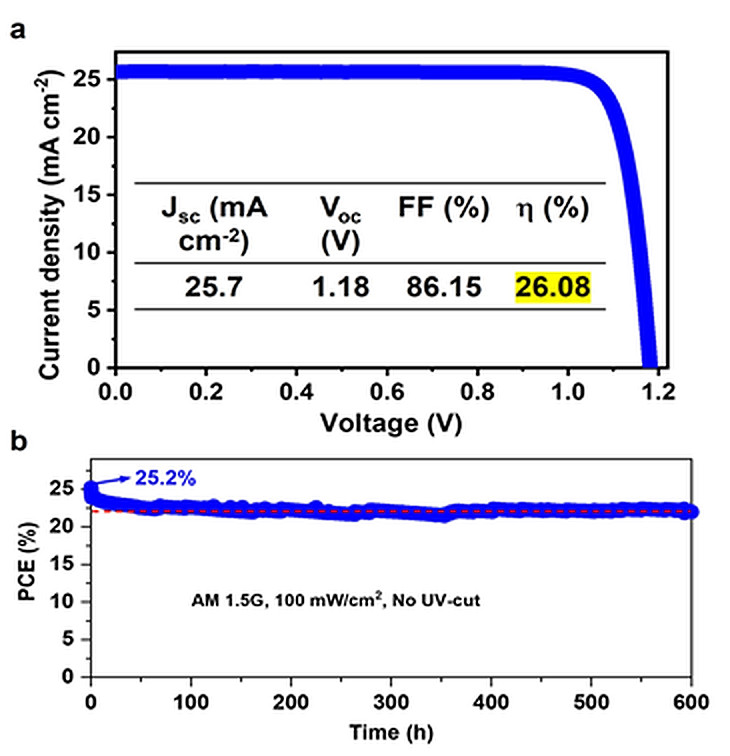Researchers at South Korea’s Ulsan National Institute of Science and Technology (UNIST) have developed a perovskite solar cell by using alkylammonium chloride (RACI) to control the formation of defects in the perovskite layer.
“Alkylammonium chloride, which is dequantized at the crystallization stage while combining with perovskite components, was used,” said researcher Sang Il Seok. “This optimal combination with Alkyl was also able to optimally control the rate of volatilization with solvent during coating and heat treatment of perovskite precursor solution.”
The scientists built the cell with a metal halide perovskite known as formamidinium lead iodide (FAPbI3), which offers superior thermal stability and a narrow bandgap. The new process enables the creation of a dense perovskite film with good crystallinity, they claimed. They investigated the surface morphology of the film via grazing incident wide-angle X-ray diffraction and scanning electron microscopy.
“RACl added to the precursor solution was believed to be easily volatilized during coating and annealing,” they explained.
They tested the film in a perovskite cell and found that it achieved a power conversion efficiency of 26.08%, an open-circuit voltage of 1.18 V, a short-circuit current of 25.7 mA/cm2, and a fill factor of 86.15%. When tested by NREL experts, the device achieved a certified efficiency of 25.73%.
The researchers presented the cell tech in “Controlled growth of perovskite layers with volatile alkylammonium chlorides,” which was recently published in Nature.
“This study is very meaningful, as it examines the crystallization process of perovskite with halide anions in real time through the UNIST-PAL Beamline of Pohang Accelerator Laboratory,” said researcher Tae Joo Shin.
This content is protected by copyright and may not be reused. If you want to cooperate with us and would like to reuse some of our content, please contact: editors@pv-magazine.com.




1 comment
By submitting this form you agree to pv magazine using your data for the purposes of publishing your comment.
Your personal data will only be disclosed or otherwise transmitted to third parties for the purposes of spam filtering or if this is necessary for technical maintenance of the website. Any other transfer to third parties will not take place unless this is justified on the basis of applicable data protection regulations or if pv magazine is legally obliged to do so.
You may revoke this consent at any time with effect for the future, in which case your personal data will be deleted immediately. Otherwise, your data will be deleted if pv magazine has processed your request or the purpose of data storage is fulfilled.
Further information on data privacy can be found in our Data Protection Policy.